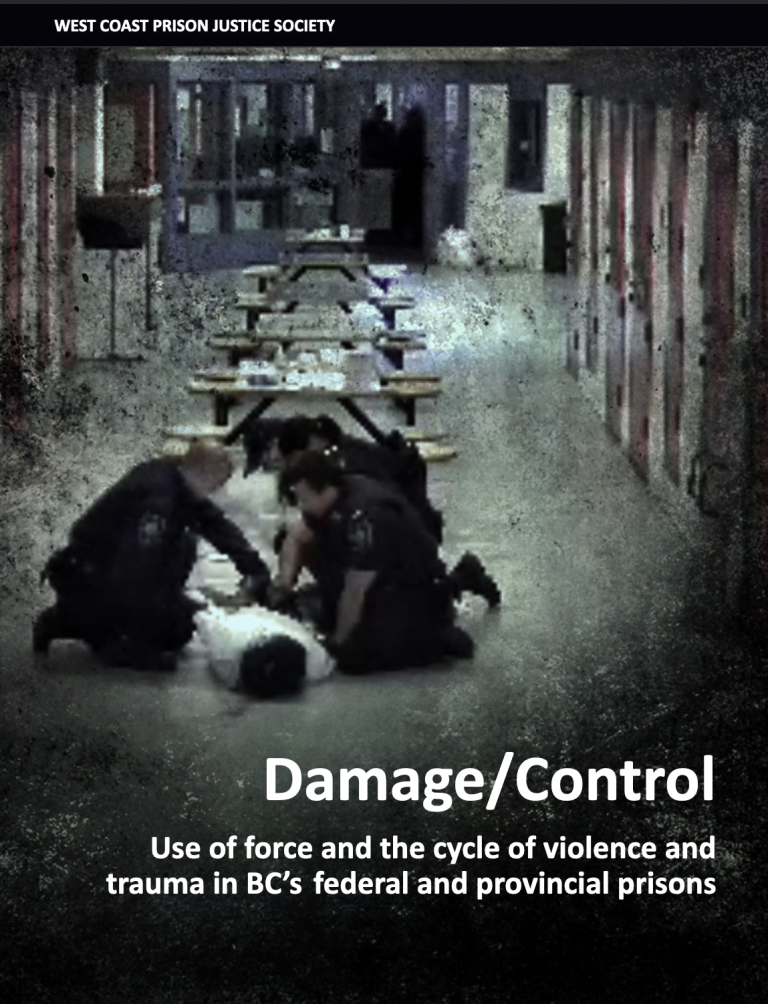87 search results
To BC Corrections
Regarding prisoners with physical and mental health disabilities
Recommendation 11: Develop an alternative model for recognizing and responding to prisoners with mental health disabilities in crisis, in partnership with the Provincial Health Services Authority (including the Forensic Psychiatric Hospital) and people with lived experience. This includes prisoners in emotional distress (such as prisoners who are self-harming) as well as prisoners who are experiencing behavioural emergencies connected with their disabilities. These responses should be supportive and trauma-informed rather than punitive.-
Category and theme:
To BC Corrections
Regarding prisoners with physical and mental health disabilities
Recommendation 12: In partnership with the Provincial Health Services Authority, develop an alternative model for recognizing and responding to medical emergencies.-
Category and theme:
Groups affected:
To BC Corrections
Regarding prisoners with physical and mental health disabilities
Recommendation 13: Identify an expert who can play a role similar to the Force Options Coordinator in reviewing uses of force against prisoners with mental health disabilities to identify problems and solutions.-
Category and theme:
To BC Corrections
Regarding prisoners with physical and mental health disabilities
Recommendation 14: Transfer authority for interventions to address self-harm and suicidality, including restraints, observation cells and suicide smocks, to the Provincial Health Services Authority. Eliminate the use of the BOARD and WRAP, except where authorized by the Provincial Health Services Authority for medical purposes.-
Category and theme:
To BC Corrections
Regarding prisoners with physical and mental health disabilities
Recommendation 15: Select officers who excel at conflict resolution and empathy to work as Mental Health Liaison Officers and on therapeutic units, and involve the Provincial Health Services Authority in their training.-
Category and theme:
To BC Corrections
Regarding prisoner voices and prisoners’ access to their own personal information
Recommendation 16: Interview prisoners as part of primary and secondary use of force reviews. Provide them and their representatives the opportunity to make a written submission as part of the review process.-
Category and theme:
Groups affected:
To BC Corrections
Regarding prisoner voices and prisoners’ access to their own personal information
Recommendation 17: Give prisoners and their representatives the opportunity to view use of force videos upon request and provide observation reports as a matter of course.-
Category and theme:
Groups affected:
To BC Corrections
Regarding prisoner voices and prisoners’ access to their own personal information
Recommendation 18: Provide all use of force reviews to prisoners when they are complete.-
Category and theme:
Groups affected:
To BC Corrections
Regarding video-recording
Recommendation 19: Amend the Adult Custody Policy to require that any planned or reasonably anticipated use of force be videotaped with a body camera from the outset, and that any spontaneous use of force be videotaped immediately after it begins.-
Category and theme:
Groups affected:
To BC Corrections
Regarding video-recording
Recommendation 20: Amend the Adult Custody Policy to require managers to ensure all relevant video footage of a use of force has been preserved within 14 days (so that footage is not deleted).-
Category and theme:
Groups affected:
